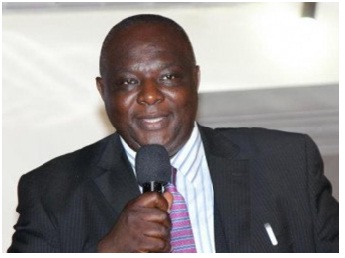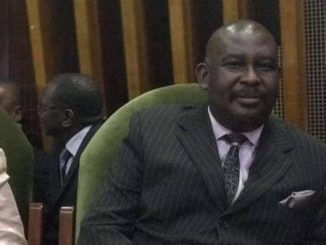
Titus Boye-Thompson, Communications Expert
There is a growing disquiet in the meeting spaces of the chattering classes. This disquiet is constituted of multi-faceted grievances and a general apathy to civility and its rapacious veracity would yet unseat a very stable and popular dispensation. The rumblings range from disaffection over the procurement of 100 buses to a discomfiture over arguments at OGP/OGI, from the growing threat posed by a group of frenetic pretenders to the complete lack of effective opposition in Parliament and from the waning Ebola fight to expectations on a post Ebola reconstruction. The question is very much one of whether the people in this country are engaged in a practical way to appreciate the musings of a few intelligent rabble rousers or one of how effective are the channels of communication that are being used to embed the nefarious contexts of these seeming insecurities on the population.
Interestingly, there are two audiences of which Governments have to be sensitive. The local communities who suffer the brunt of any alleged mismanagement and are tasked to hold the Government to account through the ballot box. In the event, Governments must be sensitive to the inclinations of their peoples and to the sensibilities of their opinion formers. They should be mindful of that seeming arrogance that accompanies power and the exercise of authority. It is for this reason that the quiet rumblings around the procurement of 100 buses should not be swiftly explained away, nor should the imbroglio at the OGP/OGI be scattered as a personality squabble. Some have rushed to judgment with a rollercoaster attitude, portending a media blitz to feign ignorance or innocence and in the thrust of their defense, leave many questions unanswered. The political sensitivity of some of these occurrences should not be easily lost in the mire. The Presidency is dragged in when perpetrators seek to inveigle his authority, his legacy undermined when protractors excuse themselves from blame but attest to proximity as an excuse for excesses and in the main, issues of accountability and probity should never be so politicized as if it becomes a campaign of vilification. For these and many other issues, there should be a focus on providing assurances rather than prevarification.
The second group is the international community, our so called development partners who are an extremely sophisticated audience. Disparate in make-up, yet unified in the swiftness of their condemnation, they present different problems for accountability and probity in public life. They hold governments to such high esteem to which they themselves would fall short if exposed to the rigors of scrutiny. The International community speaks with one voice and act in a unified manner on one single issue, and that issue is corruption. Corruption is increasingly being seen as the most vulnerable issue and the weakest link developing countries. In Sierra Leone, the context of corruption is easy prey for holding scapegoat an entire governance machinery. All Unicorns are flying animals, a Vulture is a flying animal, therefore a Vulture is a Unicorn would be an easy yet illogical conclusion that is reached by application to logical arguments. The nonsensical demerits of this argument is not only left bare for all to see, but compounded by the fact that there are no Unicorns. The same thrust of illogicality pervades the arguments levied against Sierra Leone by the international community in dealing with the issue of corruption. Government processes are corrupt would be an illogical pretext upon which to base an argument for the simple reason that no Government has set itself out to construct a corrupt process or system. If grant in aid are government processes, then grant in aid is corrupt would in the same vein be difficult to accept and on closer inspection, by both sides. Nonetheless, there is a creeping realization that a corollary argument that the dynamics of international financing processes are endemically corrupt, and if Governments are left to engage in such systems, then Governments can only become corrupt to be better able to engage in such cut throat dynamics of international financing, including the disbursement of grant in aid. The short form of these postulations is that Sierra Leone is in an unfair starting point if the people who engage on international financing and grant in aid programs are not evenly matched with their counterparts or better still that the probity mechanisms in this country are of such nature so as to be demeaning when compared to the sophisticated nature of Western financial systems. What do you say about an aid process which mandates that over 80% of aid funds pledged is retained by the countries of origin to pay for goods and services supposedly destined for the beneficiaries but yet remain largely unsuitable on arrival; of which moneys pledged in big b=donor conferences are not paid up after the champagne and fanciful dinners have been forgotten; of which aid processes accuse beneficiary countries of lacking capacity to engage in the leveraging of resources to deal with their problems but yet still disburse funds in such ways so as to end up with a cost of delivery at such astronomical proportions when compared against a delivery by local agents or local institutions; or a process that argues against the erection of permanent structures, procurement of life saving equipment or the transfer of technologies that are necessary for long term sustainability of their interventions. The aid process is beguiled by a bloating of expenses, high costs and irreverent spending patterns, accounted for in essence but overtly wasteful in practice yet it is allowable. On the other hand, the excesses of governments are encouraged by the gross disparities in emoluments and allowances, delivery frameworks and methodologies and at such an alarming rate that officials have to become skillful in diverting funds through activities that exist on paper yet are flimsy on outcomes.
Though Governments are disadvantaged in the dealings with the international community, they are unprepared for the backlash that these institutions unleash when they do not get their way. There are no scope for engagement of a parity level while so called experts are allowed to come over here and learn how to get things done. The Ebola funds have provided a bad name for Governments at a time when the people are dying in their numbers. The influx of idiots was immense yet no one looked at building the competencies of indigenes to adapt their local skills and contacts in dealing with this scourge. The numbers who came here were adventurers, getting close to an epidemic of unknown proportions, yet they raked in the bulk of the monies pledged in insurance schemes, in danger pay and other stupendous allowances as if their risk of death was different to any of the local practitioners who put their lives on the line, and for what?



